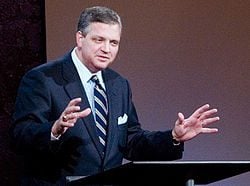Al Mohler pointed us the other week to an article in New York Magazine which puts forward a fascinating argument that counteracts the prevailing view that our greatest need is for increased self esteem.
Basically it seems we have been wrong all along about self-esteem and praise. Kids need to understand that effort is required, and should be praised for specific achievements rather than being given indiscriminate praise. This gives them the determination to keep going even when they experience failure. Kids who are even praised when they fail end up becoming praise junkies who underachieve. Interestingly, the article raises the prospect that when we are raised without any delayed gratification we develop a character which sounds remarkably like the “learned helplessness” of Seligman.
Our very affluence and lack of adversity may be producing the depression we seem to struggle with so much more than those in developing nations.
Again and again, well designed psychological research ends up supporting biblical concepts of what makes us tick. Those of us who believe in general revelation and science as a natural outworking of a belief in an orderly creator God should not be surprised. It is man’s theories when left to his own devices that are so dangerous, not his carefully conducted studies.











